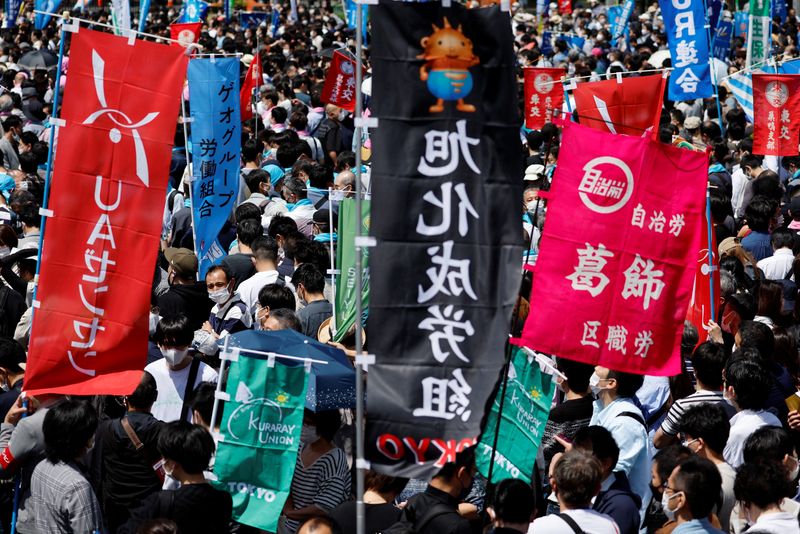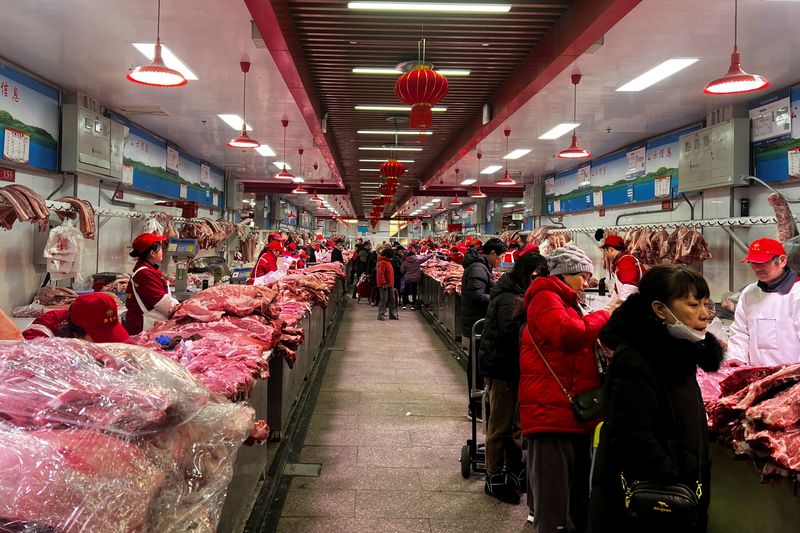

By Tetsushi Kajimoto
TOKYO (Reuters) -Japanese firms have agreed to raise pay by 5.25% this year, the biggest rise under comparable data since 2013, the country’s largest union group Rengo confirmed on Friday.
Prime Minister Fumio Kishida is counting on high wage growth to overcome more than two decades of deflationary pressures while Bank of Japan Governor Kazuo Ueda is seeking sustainable wage growth and inflation as the central bank shifts away from massive monetary stimulus.
The results of the closely-watched wage negotiations are announced in several stages, in which blue-chip firms are first to wrap up their talks in mid-March.
The second announcement on the outcome of annual labour talks on Friday was little changed from a preliminary figure of 5.28% a week ago, indicating the strength of wage growth. The agreed hike of 5.25% corresponds to an average rise of 16,379 yen ($108) a month.
As a number of companies, small firms in particular, reach agreements on pay towards April-June, the average growth of pay hikes tend to become smaller than the initial round as more announcement becomes available.
Further results are scheduled to be released on April 4 and April 18, when more small firms come up with their results.
“We will examine how broad the trend of wage hikes is spreading at a meeting on April 4,” Akira Nidaira, a senior Rengo official told a news conference.
Earlier this year, analysts had expected an overall pay raise of around 4%, after last year’s 3.6%, itself a three-decade high.
Workers at major firms had asked for annual salary increases of 5.85%, topping the 5% mark for the first time in 30 years, Rengo said.
Stripping away a periodic pay raise, Rengo said workers won a 3.64% hike – a record rate – in base pay, which is a key barometer of wage strength as it provides the basis for bonuses, severance and pensions.
In Japan, smaller and medium-sized firms account for 99.7% of all enterprises and about 70% of the country’s workforce, but many lack the pricing power to pass costs on to their customers.
At the labour negotiations, one strong showing emerged after another, led by Toyota Motor, the bellwether of annual talks, which unveiled its biggest pay increase in 25 years.
Japanese businesses are facing a chronic labour shortage due to an ageing and dwindling pool of workers.
The annual pay negotiations – called “shunto” or “spring labour offensive” – are one of the defining features of Japanese business, where relations between labour and management tend to be more collaborative than in some other countries.
($1 = 151.6000 yen)
(Reporting by Tetsushi Kajimoto; Editing by Himani Sarkar;Editing by Elaine Hardcastle)
EMEA Tribune is not involved in this news article, it is taken from our partners and or from the News Agencies. Copyright and Credit go to the News Agencies, email [email protected] Follow our WhatsApp verified Channel









